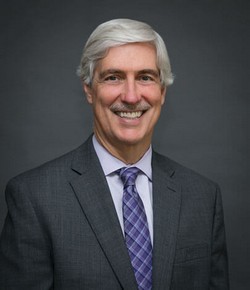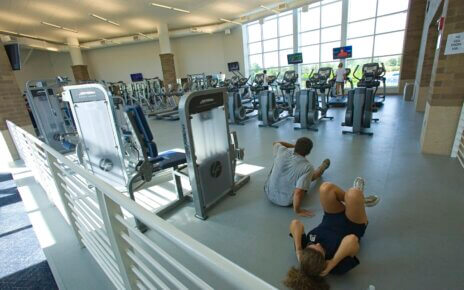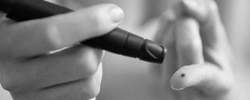John E. Henning, Ph.D., is the University’s Dean of Education. He joined the Hawk family in 2015 and has since been recognized with a wide-range of awards and notable mentions. Being a part of the University’s most recognizable field of study, Henning has both influenced and assisted in the success of future teachers.
As a student at Penn State, Henning was never one to picture himself at a desk with students referring to him as “Dean.” Surprisingly, the educational field was not his plan. He was an agriculture student, due to his passion for organic food and conscious eating. One of his many mantras is, “Eat things that promote life.” This goes back to his ideology of taking care of your personal body in order to implement more widespread changes.
When the opportunity arose to become an agricultural educator at a high school, he took it. He wanted to stick with agriculture and teaching seemed like the best way to do that.
After nine years of teaching agriculture, he switched to his other passion: writing. Henning has published four books, and over fifty journal articles. He went on to teach high school English for 12 years because of his combined love for reading, writing and learning.
Over time, he said, “I got more and more involved in motivating students to learn and read more, and I became more successful as a teacher.” He enjoyed the positive feedback that he received from students, as well as winning Teacher of the Year and other awards. He knew that he could do the same at a university. Consequently, he received his Ph.D. in Educational Psychology at Kent State University after 21 years of teaching.
Henning is an astounding support system for each and every student that he serves; whether he is a professor or dean, he makes sure that everyone who comes to him leaves with success. He stated, “Every interaction with a student is different so there is always a challenge.” This speaks volumes to his position as a dean and while it seems like your typical desk job from the outside, it is so much more than that. Each day varies and speaking to different students aids in learning more from other perspectives.
In terms of Monmouth, Henning has expressed his initiative and knowledge as he implemented the Teacher Residency Program, a rigorous program of clinical experience in the classroom. This is the second largest field experience offered at the University.
Jennifer Plummer, a senior health and physical education student, talked about the residency program. “Dean Henning has provided me opportunities to grow as a teacher candidate by involving me in professional development and establishing the Teacher Residency Program,” she said.
Another one of Henning’s many contributions to Monmouth has been the year-long clinical experience. He expanded this program so that Monmouth could implement it before other NJ schools in 2015. It produced better teachers and the number of candidates doing it has increased rapidly over the years.
The New Doctoral Program: Ed.D. Educational Degree, approved in 2016, is Henning’s main contribution to the University. This is an educational leadership program that helps students achieve educational doctorate degrees, expand their knowledge, and create a spike in their marketability.
Collaboratively, his programs help to alleviate the number one fear of teacher candidates: the first day. By the time the actual first day comes around, it feels like an ordinary day because of the additional experience gained through the program.
Kelly Schuld, a junior history secondary education and TSD student, said, “He creates opportunities and programs for his students that give us the ability to dive head first into a teaching career before even getting hired as a teacher.” Making his students feel confident when going into their career is his most prevalent accomplishment of all.
Henning has no regrets as for where he is right now as he mentioned, “It wasn’t my inclination, but it was the right place for me.” While he would have liked to pursue organic farming, education was his calling.
He drew a parallel between how helping people grow is similar to growing plants. He sees them from the beginning, finds their strengths and weaknesses, and helps them to flourish in their career.
Outside of the classroom, Henning is heavily interested in philosophical work in learning how teachers grow and develop. Additionally, his fourth book titled, Building Mentoring Capacity in Teacher Education: A Guide to Clinically-Based Practice was just recently published along with educators Dianne M. Gut and Pam C. Beam. It is an informative read filled with case studies and discussion questions.
Without Henning’s ability to influence students, many of them would not be as successful as they are today. Not to mention, the continuing success of the School of Education is rooted in Henning’s many contributions to it since 2015.
Dean Henning, thank you for all that you do for all your students and associates; we cannot wait to see what the future of the School of Education holds.
PHOTO COURTESY of Monmouth University




